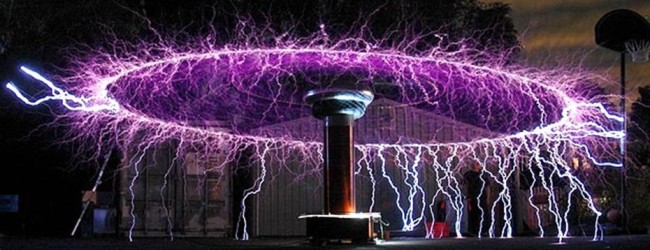Technology and economics are inexorably linked.
Understanding one, it seems, can greatly clarify one’s understanding of the other.
When a new technology works – as a business proposition – it does so because it disrupts an economy. It either dramatically changes existing flows of money within the economy or, in the optimum case, creates entirely new flows as a result of its existence.
And there have been some technologies – flashes of genius – that transform the entire economies they inhabit. Ones that have changed the way in which we do business – changed the way we live.
So trying to understand technology – which I try to do – means sometimes starting by trying to understand the underlying economics.
Which is a really roundabout way of talking about Elon Musk and Tesla Motors.
A car company, you ask?
The American Landscape is littered with ‘Visionaries’ – we almost spit when we say it – who wanted to change the automobile business.
The car business is a cute little business – we Americans buy about 20 Billion Dollars’ worth of automobiles every year. A company that was successful in taking 10% of that market would be a $2 billion dollar a year company.
One might be successful in the car business, but it wouldn’t make you Apple, for example, a company with a nearly 750 Billion Dollar market capitalization.
And it is the mention of Apple, who didn’t create a simple product, but an entire ecosystem that could grow and expand in unpredictable ways, to the point where Apple makes consumer electronics – sure – but they also make incredible revenues from entertainment, publishing and media, and now – with ApplePay – Financial Services.
People who thought Apple was a company that just wanted to make computers were wrong.
What if those people – what if you – are wrong about Tesla, too?
Public information about Tesla’s current projects and issued patents really tell the tale, if you can see what they’re telling us.
The Tesla Nevada Battery ‘Gigafactory’ has the capacity to produce a quantity of Lithium Ion batteries that far exceed the needs of Tesla Automobile’s most optimistic sales and production unit projections.
Why do that?
If Tesla isn’t a car company, it starts to make sense.
Tesla has already been issued patents for a series of hybrid Solar Power and Battery Storage power units, some designed for residential use, others for industrial scale. These units make use of solar panel technology from Solar City – a company whose Chairman is Elon Musk. These battery units are designed not just to charge a Tesla car, but to provide enough power to run the entire residence or business to which they are attached. A technology which not only frees its users from the gas pump, but also potentially from the public electric grid, as well.
Americans spend more than $350 billion dollars every year on gasoline. 10% of that market would be a healthier $35 billion in annual sales.
We also spend a similar amount on electric power in the US. Think another $35 billion.
Start showing some upside on that $70 odd billion of US sales, factor in the rest of the world, and it takes very little to make Tesla one of the primary movers of wealth in the whole world economy.
Nikola Tesla was a genuine visionary who thought the power of electricity moved the entire universe.
Allow me to suggest that the Tesla Motors was never about the automobile. The car’s purpose was to create a new demand – an entry point for a whole ecosystem of a different kind of energy – energy that was a personal commodity, made and used by you as you see fit.
Tesla, the company, doesn’t want to beat Ford, they’re after the Royal Dutch Shell/BPs, the Constellation energies of the world. Not a car company, but a disruptor of the world’s energy markets.
A Californian company designing some tree-hugger’s dream impractical green electric car?
Hardly.
The vision is one completely in line with that of Nicola Tesla himself – limitless electric power that is not part of some pay by the drink model where Oil Companies and Electric utilities profit endlessly from a global addiction to the energy they provide at monopoly prices.
The Tesla automobile – as impressive a technical achievement as it is, and as good a car as it is – is really just small potatoes.
Don’t say nobody told you.
